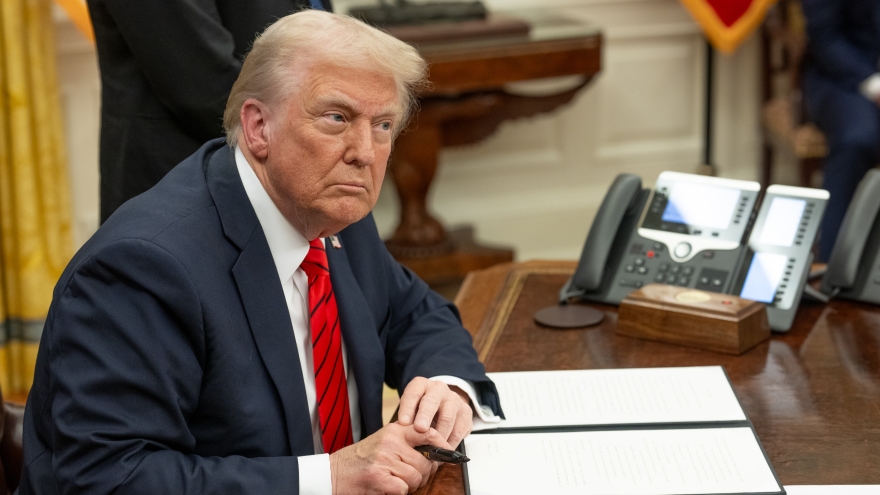Report examines ‘regulatory paradox’ and ‘jawboning’ in technology oversight by federal agencies

White House photo by Daniel Torok.
By subscribing, you agree to receive communications from Auto Remarketing and our partners in accordance with our Privacy Policy. We may share your information with select partners and sponsors who may contact you about their products and services. You may unsubscribe at any time.
Perhaps technology regulation isn’t loosening as much as industry leaders and fintechs anticipated when a new president entered the White House in January.
The Phoenix Center released a new analysis this week that claimed key federal agencies continue to pursue aggressive regulatory approaches against the American technology sector that echo policies of the previous Biden administration.
In particular, the Phoenix Center said agencies like the Federal Trade Commission and the Federal Communications Commission are maintaining or expanding regulatory oversight of tech companies despite President Trump’s stated pro-growth, deregulatory vision and his executive order expressly prohibiting government “jawboning” of private speech protected by the First Amendment.
The Phoenix Center highlighted that the American technology sector represents one of the most remarkable economic success stories of the modern era, employing approximately 18 million people and contributing more than $17 trillion in market capitalization.
“This success has been built on historically bi-partisan light-touch regulation that allowed rapid innovation and scaling,” researchers said in a news release that highlighted the availability of the report titled, The Unexpected (and Unnecessary) ‘Regulatory Paradox’ in Current U.S. Tech Policy.
Drawing on voter preference data, the report revealed that 74% of Trump voters believe government regulation “usually does more harm than good,” compared to only 17.6% of Biden voters—a nearly 4:1 margin.
Subscribe to Auto Remarketing to stay informed and stay ahead.
By subscribing, you agree to receive communications from Auto Remarketing and our partners in accordance with our Privacy Policy. We may share your information with select partners and sponsors who may contact you about their products and services. You may unsubscribe at any time.
The research also showed that even Trump voters with unfavorable views of technology companies (82.6%) still oppose regulation more strongly than they oppose the companies themselves.
“The regulatory morass targeting America’s most successful industry directly contradicts both voter expectations and President Trump’s stated vision for national success,” said study co-author and Phoenix Center president Lawrence Spiwak.
“When federal agencies ignore the President’s Executive Orders on regulatory reform and free speech in favor of continuing Biden-era enforcement strategies, these agencies undermine the very technological leadership that drives American competitiveness.”
The analysis also documented concerning trends including the FTC’s retention of the Biden/Khan Merger Guidelines, continued efforts to “jawbone” Constitutionally protected speech, and the FCC’s anticipated efforts to interpret Section 230 that would exceed the agency’s statutory authority, according to the Phoenix Center.
Co-author and Phoenix Center chief economist George Ford said, “Regulation that goes beyond necessity creates profound uncertainty, forces companies to divert resources from R&D to compliance, and advantages established players over innovative startups. This approach strengthens the very corporate powers it seeks to constrain.”
The Phoenix Center recommended that federal agencies align with Trump’s agenda by:
—Ending efforts to infringe on digital platform’s constitutionally protected speech
—Returning to the consumer welfare standard in antitrust enforcement
—Reconsidering the retention of Biden-era merger guidelines
—Eliminating regulations that exceed statutory authority or lack clear justification
“Americans voted for change in 2024, not more of the same regulatory excess,” Spiwak said. “True national success requires policies that encourage rather than discourage entrepreneurship, innovation, and American technological leadership.”
And Ford added, “It’s time to reverse the economically destructive policies of the Biden era. Republican leadership must stop perpetuating the same regulatory overreach they campaigned against.”


